15 feet and a wall: Why some homeowners feel marginalized by the city’s plan to help families without homes
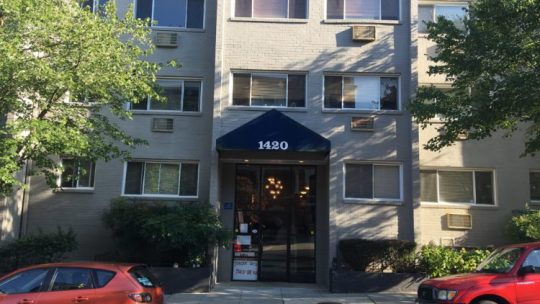
Once finished, the new Ward 1 building will include 35 “apartment-style” short-term units for families in need of shelter and 15 permanent supportive housing units. In total, it will provide residence for up to 50 families experiencing homelessness.
But residents in a neighboring building say they did not know the city planned to build right up to the border of their condominium. They say
heir complaint has nothing to do with the shelter being put next door and that they want District residents to know how this project was pushed through despite organized requests for small but significant changes.
By Will Schick | Read the full article

COMMENTARY: In a letter about homelessness, NoMA BID shows whose safety the system prioritizes, writes a NoMa resident.
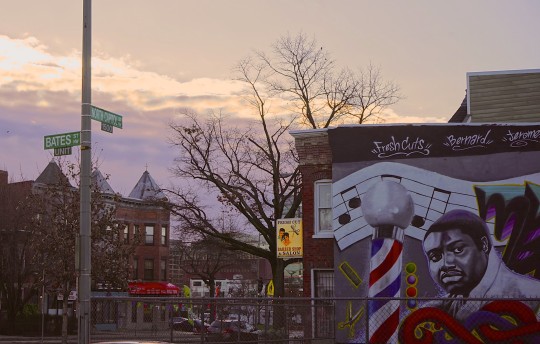
I live in NoMa, just a 10-minute walk from the underpass encampments mentioned in the NoMa BID’s open letter. As someone who walks past the encampments daily, I was shocked to read the insensitive, dehumanizing letter penned by Robin-Eve Jasper, the NoMa BID President. Not only does the letter espouse common misconceptions about homelessness, its causes and solutions, but it also mischaracterizes the homeless community of NoMa as a dangerous “other.”
By Reina Sultan | Read the full article

The Battle for the NoMa Underpasses
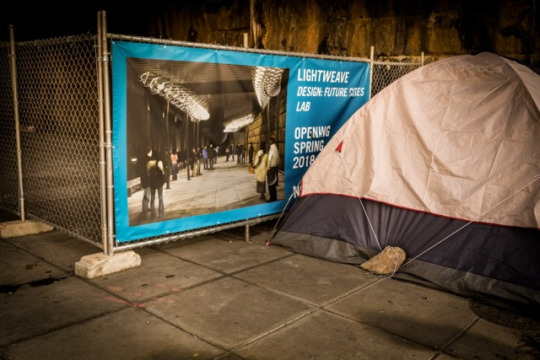
On Wednesday, Aug. 25, the NoMA BID published an open letter saying that conditions were worsening in the underpass encampments and that “people are worried about their ability to safely traverse these public spaces.” The letter, signed by NoMA BID president Robin-Eve Jasper, detailed complaints residents had shared with the BID regarding the encampments and their residents, including: harassment, “aggressive panhandling,” used and bloody needles, rotting food, trash, broken glass, public nudity, prostitution, drug sales, and human excrement.
It called on NoMa residents to contact Ward 6 Councilmember Charles Allen, Mayor Muriel Bowser’s office, and Deputy Mayor for Health and Human Services Wayne Turnage.
It also caused an upswing in complaints to Turnage, who tells City Paper that his office got far more complaints after the BID letter came out than what he had received before, and that the recent communications largely echoed the letter
By Chelsea Cirruzzo | Read the full article

Finding gainful employment remains a large hurdle for homeless DC residents. A new Georgetown cafe aims to help overcome it.
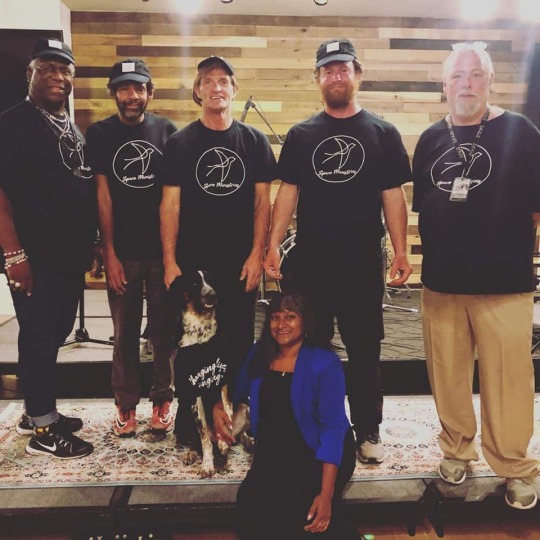
Inspired by the Latin word for “hope,” Spero Ministries, a new employment initiative in Georgetown, aims to provide temporary employment and training for D.C. residents that may struggle with job stability or require a supportive work environment. This includes people with a history of homelessness, trafficking, refugees, and people returning from prison. Beginning Sept. 8, Spero will run a coffee shop during the week inside Georgetown’s Veritas City Church on K Street NW between Wisconsin Avenue and Key Bridge.
By Maia Brown | Read the full article

Martha’s Table’s no-cost clothing boutique is now available to DC’s returning citizens

Last month, local nonprofit Martha’s Table announced a new partnership with the Mayor’s Office on Returning Citizens’ Affairs to open its Outfitters program to returning citizens who are coming home to D.C. A credit card to Martha’s Table Outfitters is now included in the welcome home package MORCA provides, with no extra referral step or application process required.
Martha’s Table Outfitters allows members to shop in their boutique at no cost with a $40 credit card that reloads automatically each month. The shop offers baby items, children’s clothing, and professional adult clothing, with most items priced between $1 and $6. The card reloads indefinitely, so customers can continue to shop there long after they secure a job.
President and CEO Kim Ford said having a support system is one of the most important resources for men and women returning from the criminal justice system.
By Brianna Bilter | Read the full article

Ending food insecurity takes lots of resources, people and collaboration – and there’s plenty of room to grow
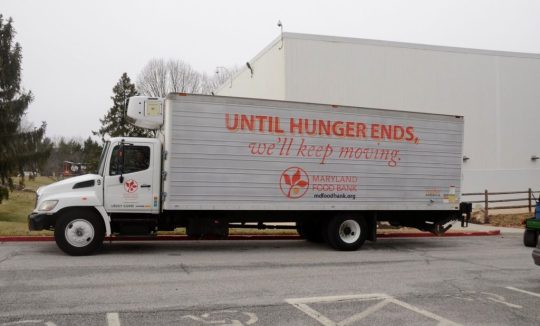
For someone who’s never experienced it, “going hungry” might conjure up Depression-era imagery; emaciated scavengers roaming the street in rags, for example. But 21st Century hunger in the U.S. looks very different, and you might not even know it if you saw it.
Local governments and advocates now calls hunger “food insecurity,” which is defined as inconsistent access to adequate food for a household. It’s hard to know exactly how many people experience food insecurity; in the District of Columbia, estimates suggest roughly 1 in 9 people or 1 in 7 families.
Produced by Maura Currie | Listen here, live at 12:32 p.m.

As an outreach specialist, she meets homeless people ‘where they are’
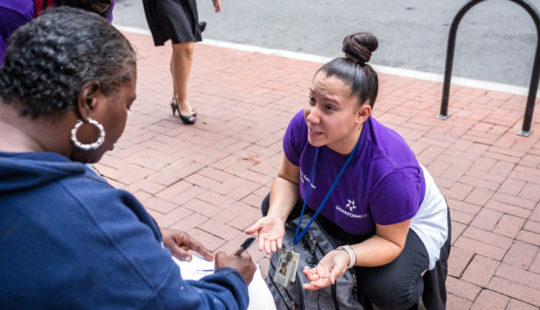
Mercedes Dones-Patricelli, a homeless outreach specialist for Pathways to Housing DC, works in a large, busy area of Northwest DC that extends from 16th Street to North Capitol Street. She is one of three members of the downtown outreach team for Pathways DC, a nonprofit organization that provides permanent housing as well as comprehensive mental health, addiction and medical services for more than 3,500 people a year who are experiencing homelessness or are at risk for homelessness.
By Catherine Lee | Read the full story

What is so complicated about homeless encampments in the District?
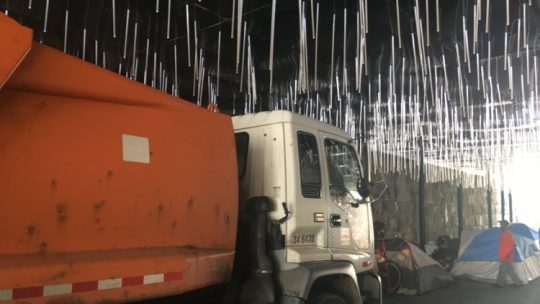
The subject of homeless encampments can be difficult to understand, and even more difficult to talk about. Encamped communities affect not just the people who live in them but those who live around them.
By Will Schick | Read the full article




